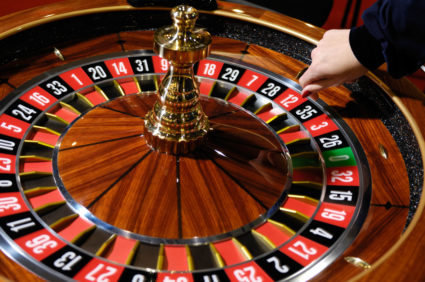 The Man Behind Roulette
The Man Behind Roulette
Blaise Pascal was a French physicist, inventor, and mathematician who created the roulette wheel. Pascal did not set out to create a new casino game. Pascal made an attempt to create a perpetual motion device in 1655.
A perpetual motion machine is a device that continues to run devoid of the need for further power. Pascal was trying to defy the odds since he was an inventor, despite the fact that the rules of physics state it is impossible. Although his experiment was unsuccessful, the method led to the creation of one of the all-time most well-liked casino games.
Zeroing In On The Change
Interesting fact: The roulette wheel didn’t have a zero until the middle of the 19th century. The Roulette wheel that Pascal created stayed unchanged for many years. All of that changed in 1842 when Francois and Lois Blanc created a roulette wheel for King Charles III of Monaco with a single zero on it. This was a huge problem because including a zero increased the house edge.
Charles created a casino and popularized the roulette wheel when his kingdom was having financial difficulties. The wheel was a major source of revenue for Monaco, and it swiftly came to represent the opulent gambling tradition in Monte Carlo. In addition, when France outlawed gambling, the single-zero Roulette wheel was introduced to the market, increasing demand for Monte Carlo.
Coming to America
American influence would be present in roulette. Roulette arrived in the United States in the 1800s after traveling over the sea. The Roulette wheel now has a double zero, further increasing the house advantage. This implies that the American Roulette wheel would have 38 numbers instead of 37. (1 through 36, 0, and 00).
The roulette odds show your likelihood of winning a wager. As there are 38 numbers in American roulette, for instance, the odds of landing a single number with a straight-up bet are 37 to 1. The chances for rewards on combination bets are the same, but the house only offers a 35 to 1 payoff on winning wagers. This is caused by the house edge, in which the casino keeps a portion of every wager for itself. While payout is typically provided as a ratio to your stake, odds are frequently shown as a percentage.
Your chances of winning a wager are dictated by the odds in roulette. In American roulette, for instance, there are 38 numbers, thus the odds of hitting just one with a straight-up bet are 37 to 1. However, the house only offers a 35 to 1 payoff on winning wagers, and the payout odds for winning combo wagers are also the same. Due to the house advantage, which sees the house take a portion of every wager for itself, this is the case. While payout is commonly represented as a ratio to your stake, odds are frequently presented as percentages.


Leave a Reply